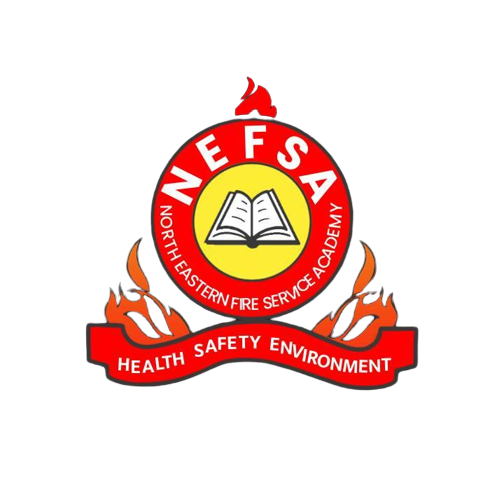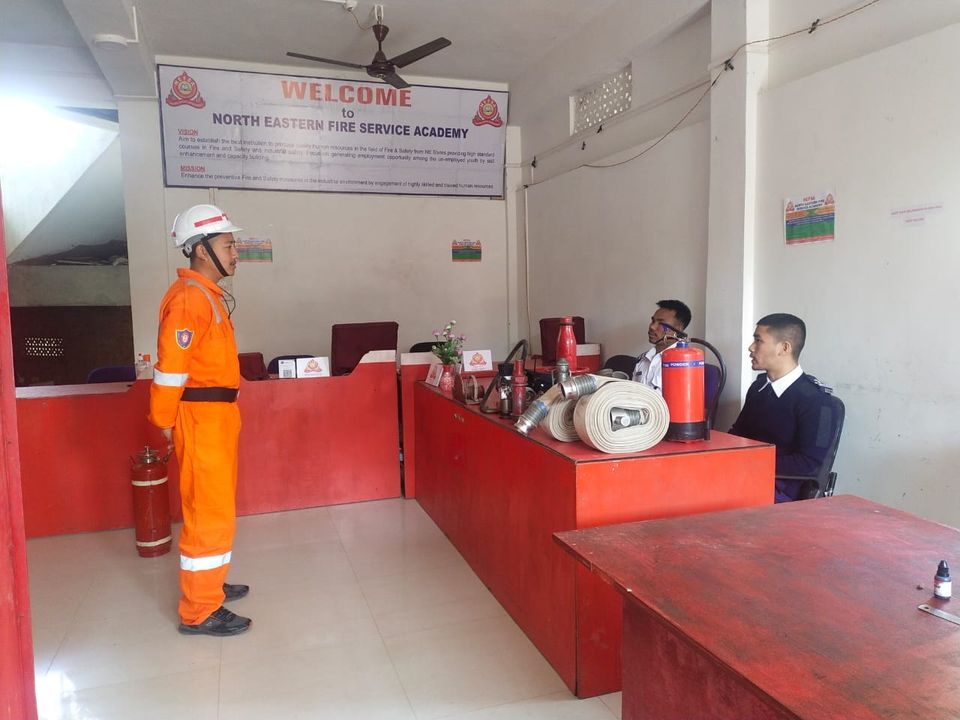Fire hazards pose a significant risk to homes, offices, and industrial spaces. Understanding these risks and taking preventive measures can save lives and property. At NEFSA Fire Academy, we emphasize fire safety education to reduce fire-related incidents. In this guide, we’ll cover common fire hazards and how you can prevent them.
1. Electrical Hazards
Common Risks:
- Overloaded power outlets and extension cords
- Faulty or exposed wiring
- Malfunctioning electrical appliances
Prevention Tips:
- Avoid overloading sockets—use a surge protector.
- Get electrical wiring checked by professionals regularly.
- Unplug unused appliances to reduce the risk of overheating.
2. Kitchen Fires
Common Risks:
- Unattended cooking
- Grease buildup on stoves and exhausts
- Flammable objects near heat sources
Prevention Tips:
- Never leave cooking unattended.
- Keep a fire extinguisher (Class K) in the kitchen.
- Clean grease and oil residues regularly.
3. Flammable Materials
Common Risks:
- Improper storage of chemicals and fuels
- Flammable liquids near heat sources
- Poor ventilation in storage areas
Prevention Tips:
- Store flammable substances in fire-resistant cabinets.
- Keep them away from heat sources and electrical appliances.
- Ensure proper labeling and ventilation in storage areas.
4. Smoking-Related Fires
Common Risks:
- Discarding cigarettes carelessly
- Smoking indoors or near flammable materials
- Using faulty lighters or matches
Prevention Tips:
- Always extinguish cigarettes in designated areas.
- Avoid smoking near dry vegetation or in restricted areas.
- Never throw cigarette butts in trash bins with paper or chemicals.
5. Heating Equipment & Open Flames
Common Risks:
- Portable heaters placed too close to objects
- Unattended candles
- Faulty chimneys and fireplaces
Prevention Tips:
- Keep heaters at least 3 feet away from flammable objects.
- Extinguish candles before leaving the room.
- Get chimneys and fireplaces inspected annually.
6. Faulty Fire Safety Equipment
Common Risks:
- Non-functional smoke detectors
- Expired or missing fire extinguishers
- Blocked emergency exits
Prevention Tips:
- Test smoke alarms monthly and replace batteries yearly.
- Keep fire extinguishers accessible and check their expiration date.
- Ensure emergency exits are clear and well-marked.
7. Workplace Fire Hazards
Common Risks:
- Poorly maintained machinery
- Cluttered workspaces with combustible materials
- Lack of employee fire safety training
Prevention Tips:
- Schedule regular maintenance for machines and equipment.
- Keep work areas tidy and free of flammable waste.
- Conduct regular fire drills and training sessions.
Final Thoughts
Fire hazards can be minimized with proper awareness, maintenance, and preparedness. NEFSA Fire Academy is committed to spreading fire safety education and training individuals to handle emergencies effectively.
Need professional fire safety training? Contact NEFSA Fire Academy today!
Contact Details
📞 Phone: 9435904101 | 9435912101
📧 Email: nefsaindia@gmail.com
🌐 Website: https://nefsaindia.com/
For more Blog : Click Here
Join Us :- Click here







